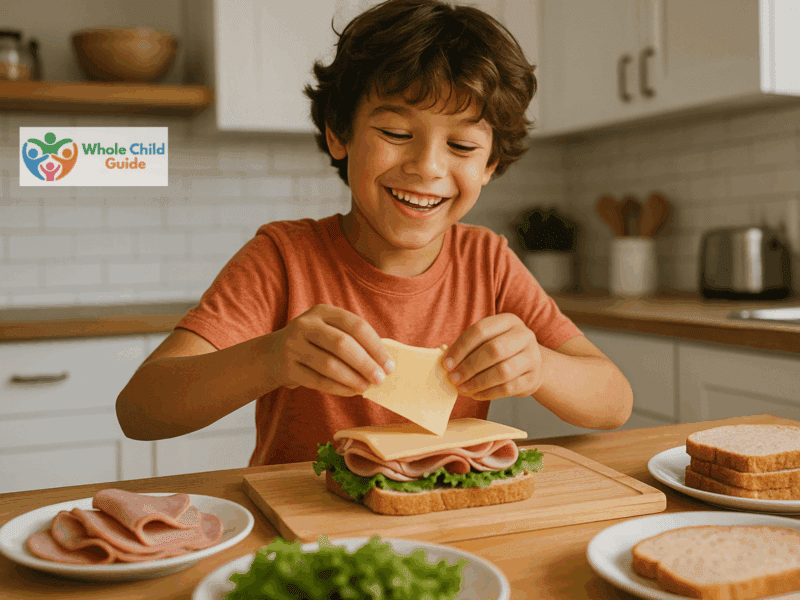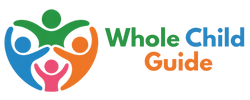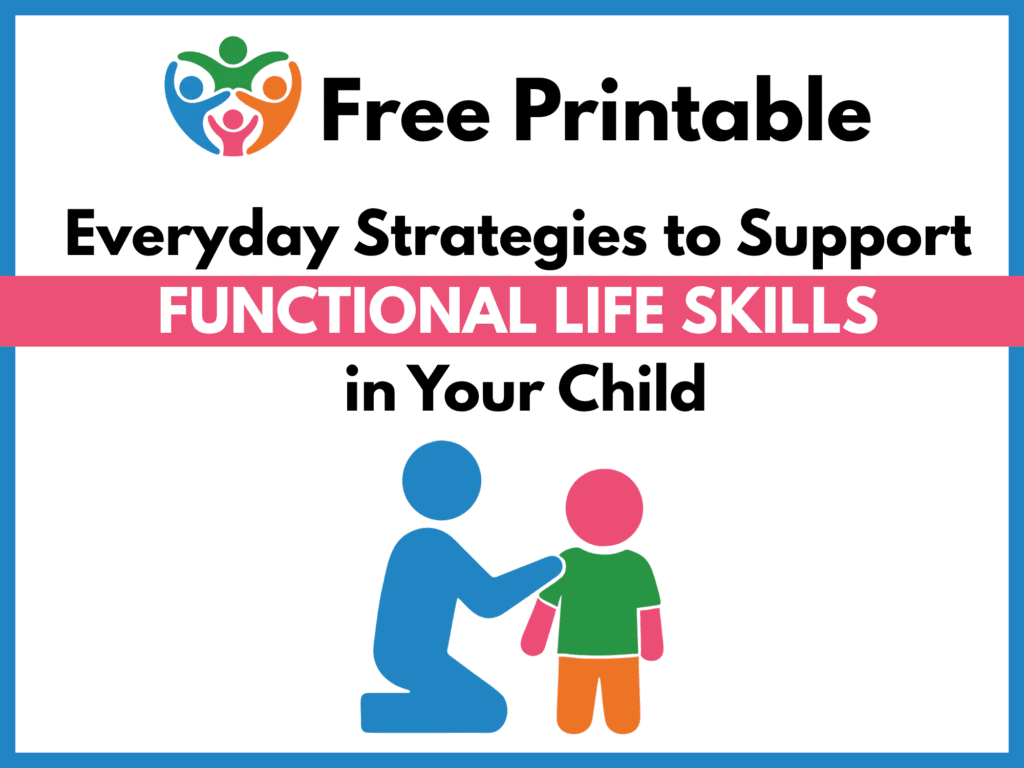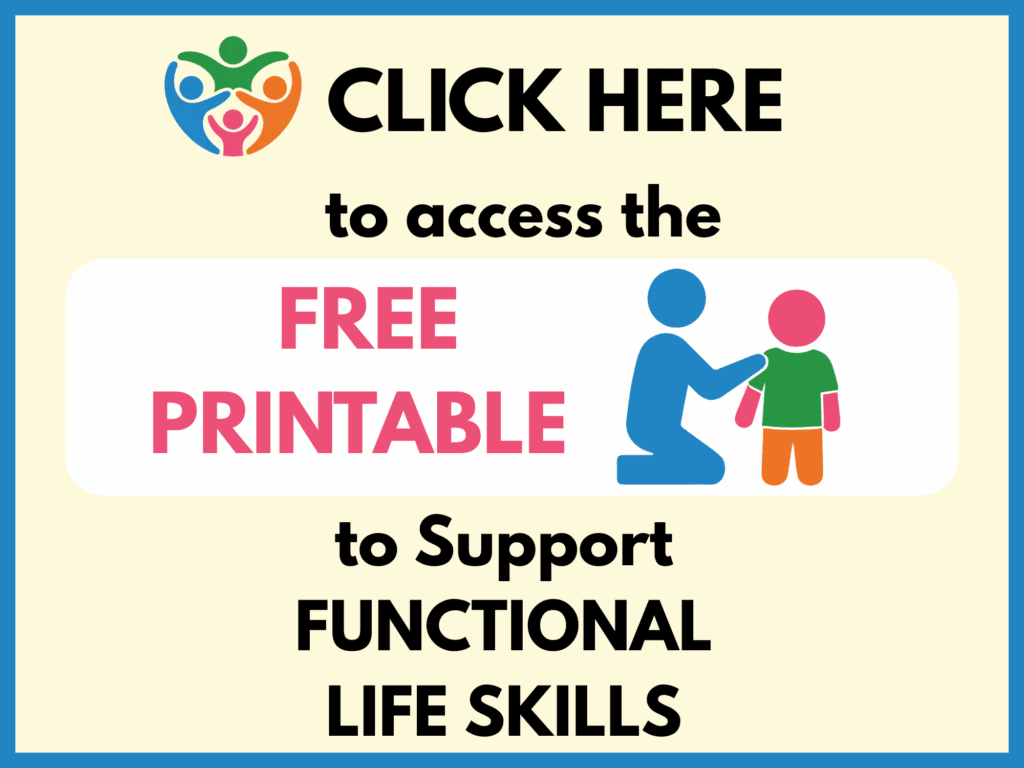
When we talk about child development, we often focus on academic readiness, language milestones, and sensory integration. But one critical area of development often flies under the radar: functional life skills. These are the everyday routines and tasks that help children become more independent, confident, and capable in real life.
In this post, we’ll explore:
- What functional life skills are
- Why they matter to whole child development
- How families can support these skills in daily routines
- How to use Whole Child Guide to find resources or professionals who help with life skills
What Are Functional Life Skills?
Functional life skills are the real-world, day-to-day abilities that allow a child to take care of themselves and participate in home, school, and community settings. These include things like:
- Brushing teeth and getting dressed
- Packing a lunch or snack
- Following a chore routine
- Learning how to manage time or organize a backpack
- Asking for help when needed
- Even something as simple as sleep can be considered a life skill, because it’s something we do to function!
These tasks may seem small, but they are foundational building blocks of self-care and independence.
Why Functional Life Skills Matter in Whole Child Development
When we take a whole child perspective, we understand that development is about more than academics or physical milestones. Independence, confidence, and emotional growth come from being able to do things for oneself.
Here’s how functional life skills connect with other developmental areas:
- Emotional regulation: Kids who can manage routines feel more in control of their day.
- Motor development: Tasks like buttoning a shirt or tying shoes build fine motor coordination.
- Executive functioning: Planning, sequencing, and remembering routines support attention and memory.
- Social development: Being able to care for personal needs increases confidence in social settings.
When we support functional skills, we’re helping them feel capable and included.
Everyday Life Strategies That Support Functional Skills
Here are 3 simple ways to support functional life skills through daily routines:
1. Involve Kids in Mealtime Prep
From toddlers to teens, there’s always a way for kids to help. Let young children wash fruits or stir batter. Older children can pack snacks, make sandwiches, or plan a menu. These tasks build sequencing, motor skills, and confidence.
2. Make Dressing a Learning Opportunity
Encourage independence with a predictable dressing routine. Use visuals or checklists. Try clothing that promotes success (like zipper pulls or elastic waists). Celebrate effort over perfection.
3. Use Morning and Bedtime Routines as Skill Builders
Turn transitions into practice opportunities. Have your child brush teeth with a visual schedule, use a timer for each step, or pick their own outfit at night to build self-initiation.
Each of these routines helps children build independence in ways that naturally fit into your day.
How to Support Functional Life Skills at Home
Supporting functional life skills for kids doesn’t have to be complicated. At home, the best way to help your child build independence is by weaving skill-building into your daily routines. Offer choices, let your child help with simple tasks, and encourage them to try before stepping in. Use visual schedules, checklists, and consistent expectations. These tools help children learn what comes next, how to complete tasks, and feel success in doing them.
Simple opportunities like letting your child zip their coat, pour their drink, or organize their backpack can teach self-care skills in child development. It also strengthens confidence and executive functioning.
Child Routines That Build Independence
Routines are the perfect vehicle for developing child independence skills. They reduce stress, improve behavior, and help kids internalize sequences and expectations. Whether it’s a morning routine, a bedtime checklist, or a weekly chore chart, each part of the routine teaches a valuable life skill.
Use consistent steps in routines so your child learns through repetition. For example, a bedtime routine that includes brushing teeth, choosing pajamas, and reading together supports both self-care and emotional regulation. These child routines that build independence empower kids to take ownership of their role in daily life.
Simple Daily Tasks That Support Child Development
You don’t need to carve out extra time to build life skills. Focus on simple daily tasks that support child development, like:
- Setting the table or clearing dishes
- Sorting laundry or matching socks
- Putting on shoes and zipping coats
- Choosing a snack and throwing away the wrapper
These tasks build motor planning, sequencing, attention, and confidence. Incorporating these everyday routines for child development into your child’s life makes learning functional life skills a natural part of their day.
Each of these routines helps children build independence in ways that naturally fit into your day.
How to Use Whole Child Guide to Support Life Skills
Sometimes, families need extra support to help kids gain independence. That’s where Whole Child Guide comes in. You can check out this resource on how to use Whole Child Guide as well.
We help you:
- Find occupational therapists or parent coaches who specialize in daily living skills
- Access printable tools like routine charts, visual schedules, and checklists
- Connect with professionals who take a whole child approach to development
Whether you’re looking for new strategies at home or the right specialist to guide you, Whole Child Guide can help.
Free Printable: Building Independence Starts With Everyday Skills
Supporting your child’s ability to participate in daily life builds confidence, connection, and resilience. And you don’t have to do it alone.
Download the free printable from this post to get simple, ready-to-use ideas for life skill practice at home.
And if you’re a professional who supports functional skills development, from OT to parent coaching, we invite you to list your services in the Whole Child Guide Directory.
Together, we can help every child grow into a confident, capable version of themselves, one daily routine at a time.
Are You a Professional Who Supports the Whole Child?
Join the Whole Child Guide Membership for professionals and get:
✅ Unlimited access to all our printables — organized for easy use in therapy, education, and parent support
✅ A high-visibility listing in our Business Directory — where families search based on their child’s needs
✅ Access to Downloadable Business Growth Workbooks to grow the impact of your practice
✅ The WCG Business Builder Tool to help you reach aligned families and grow sustainably
✅ All for just ONE annual fee — a marketing write-off that works smarter, not harder
👉 Join Whole Child Guide for Professionals
Together, let’s connect more families with the care they need.



